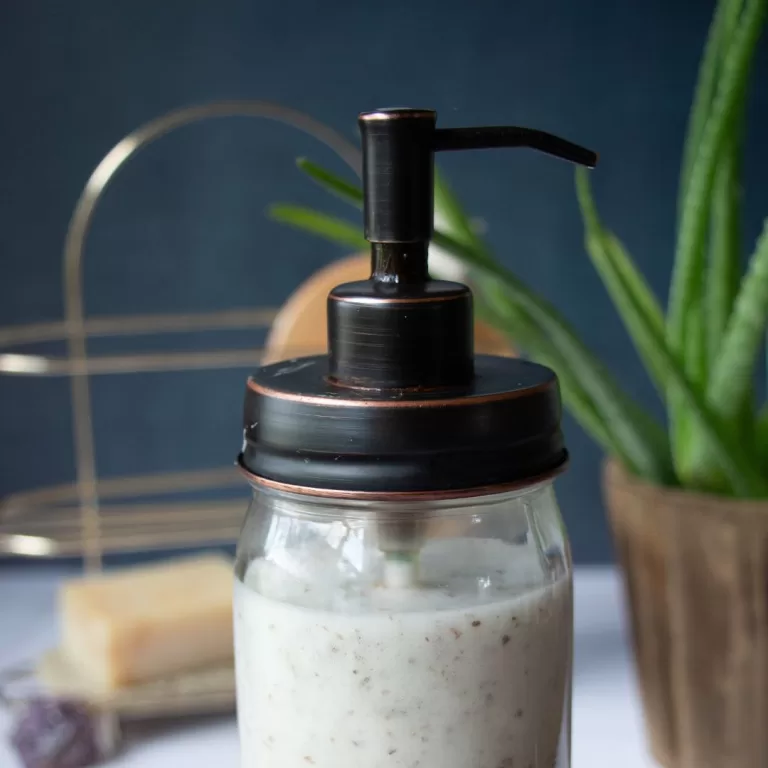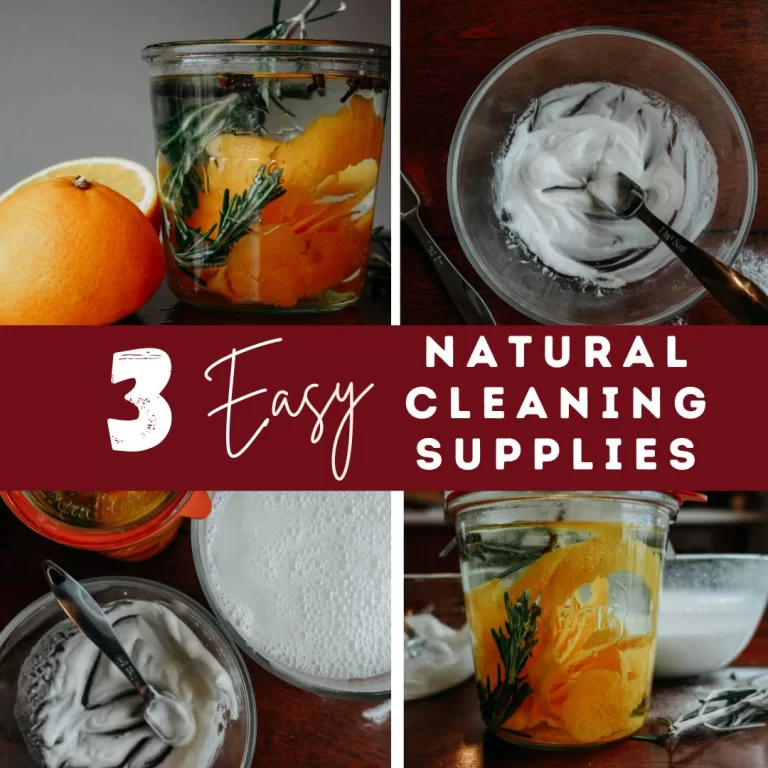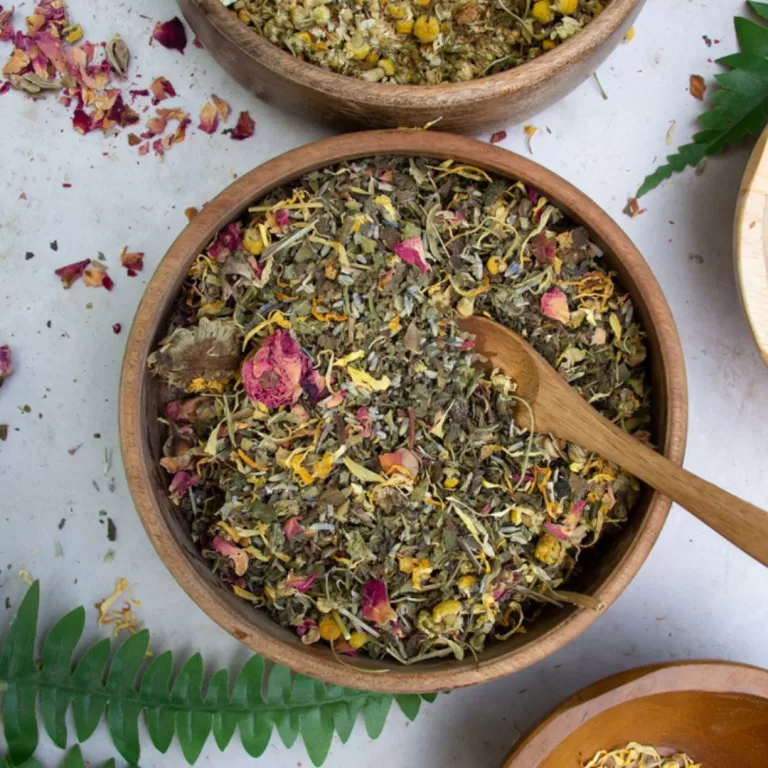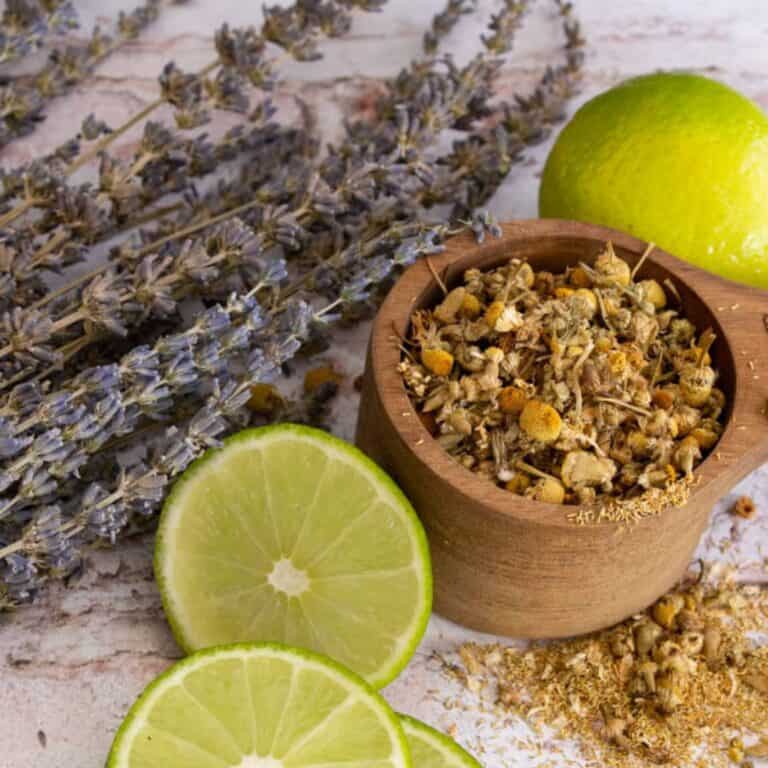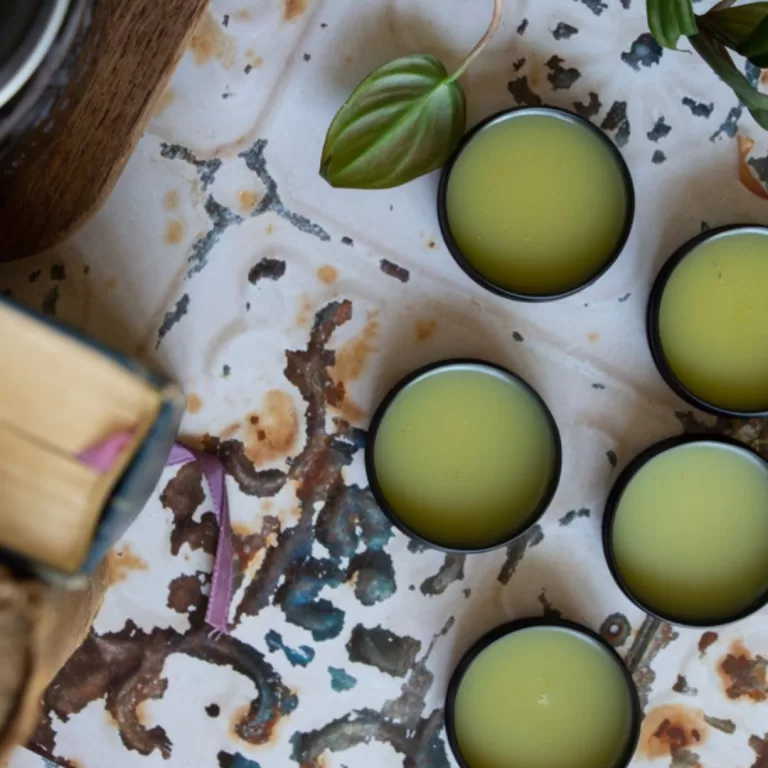Easy DIY Cardamom Toothpaste Recipe
An all natural herbal toothpaste using cardamom, baking soda, coconut oil, and salt.

Are you tired of commercial toothpaste that comes loaded with artificial ingredients and fails to address persistent bad breath? It might be time to take matters into your own hands – quite literally. By harnessing the power of natural ingredients, you can bid farewell to the chemicals and additives in commercial toothpaste while embracing a solution that not only freshens your breath but also contributes to your overall oral health.
Explore the benefits of crafting your own toothpaste, focusing on the fresh scent and health-promoting properties of cardamom. Your teeth and breath deserve a fresh start, and this DIY Cardamom toothpaste recipe using basic ingredients might just become a new favorite!
I see a lot of DIY natural toothpaste recipes use essential oils, but I do not use essential oils internally whatsoever, as they are not really safe for consumption without serious care and study (I am not a doctor). I prefer to use simple ingredients in my natural products. Whole herbs are generally gentler to use and can even be more effective.
As an Amazon Associate, I earn from qualifying purchases. Please visit my privacy + disclosure page for more details.
Cardamom Natural Toothpaste Recipe
Ingredients:
- 2 tablespoons of baking soda
- 3 tablespoons of coconut oil
- 1/2 teaspoon of salt
- 1 teaspoon of ground cardamom
Beginner Tip!
If you are making a baking soda and salt-based toothpaste for the first time, you are absolutely going to want to add peppermint! Conventional toothpaste tastes pretty good! This tastes… a bit savory. All I am sayin’ is… sometimes getting rid of questionable ingredients requires a bit of sacrifice sometimes. See below to find more optional additions that can help your own natural toothpaste suit your taste!
Supplies:
- Metal tins or small glass jars (baby food jars are a great size)
- Measuring spoons
- Small bowl
- Silicone spatula
Instructions:
- In a clean, dry bowl, start to combine the dry ingredients. Combine the baking soda and salt. Add the ground cardamom to the mixture.
- Gradually add the coconut oil to the dry ingredients. Mix until you have a smooth, creamy toothpaste. Don’t melt the coconut oil all the way when combining, or the dry ingredients may settle to the bottom once the coconut oil re-solidifies.
- Once your cardamom toothpaste is well mixed, transfer it to a clean container with a lid. The final consistency is almost like kinetic sand (wow, I am not making this sound appetizing!)
- To use, simply scoop a small amount of the cardamom toothpaste onto your toothbrush and brush your teeth as you would with regular toothpaste. Spit out as you normally would.
- Store the toothpaste in a cool, dry place. Coconut oil may solidify in cooler temperatures, so if it becomes too firm, you can warm it slightly to make it easier to use.


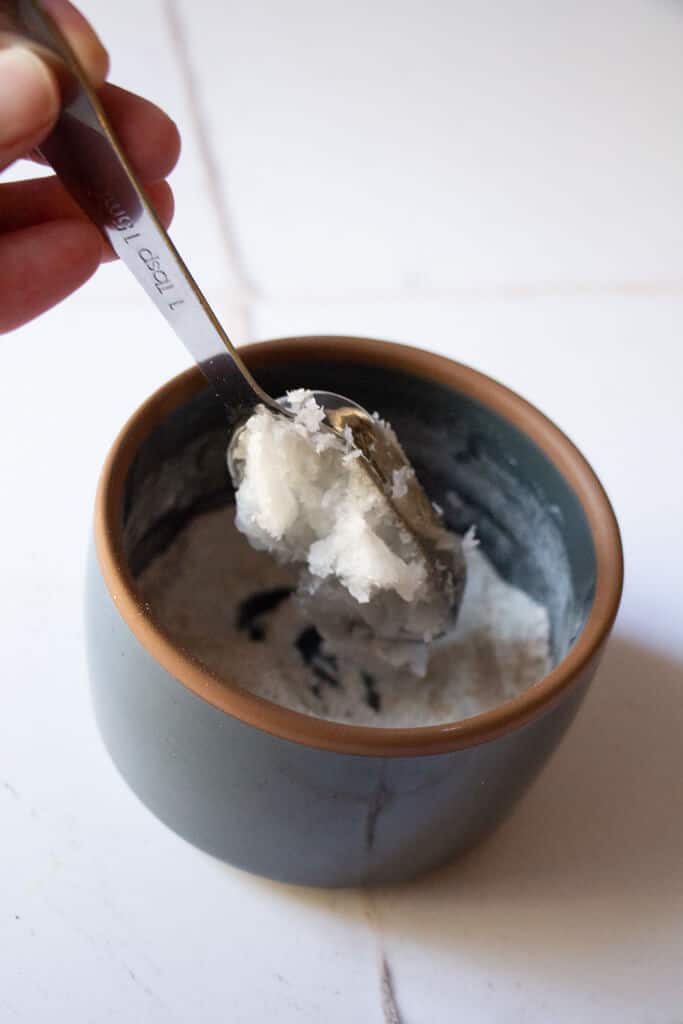
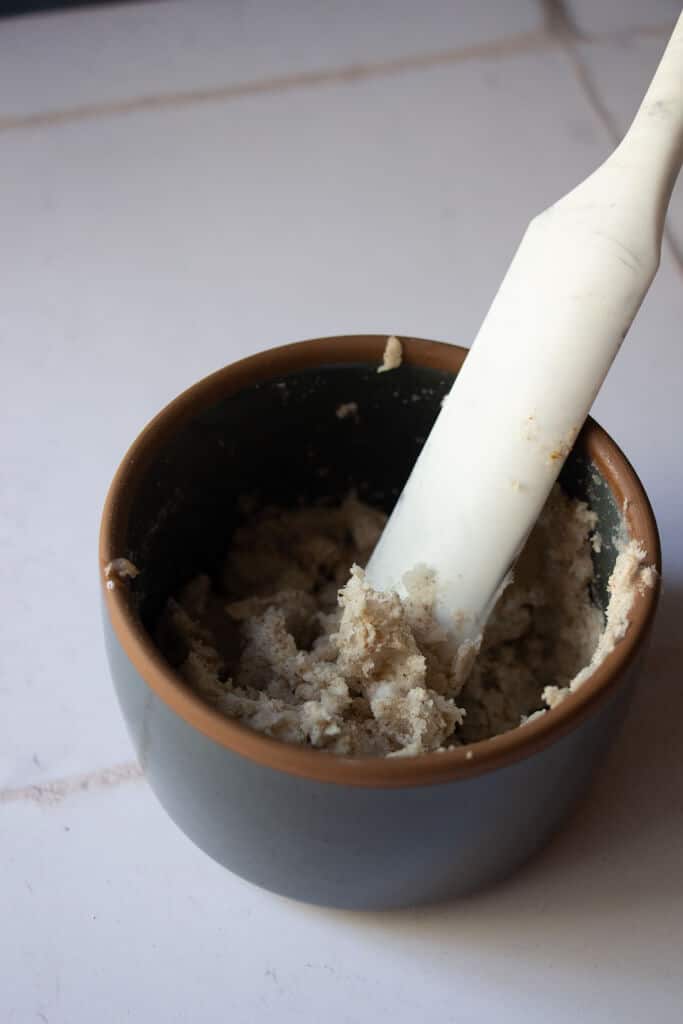
This homemade cardamom toothpaste provides a unique flavor and the potential benefits of the ingredients you’ve chosen. Remember that this is a natural toothpaste, and it’s important to consult with a dentist if you have specific dental concerns.
DIY Toothpaste Storage
Store toothpaste at room temperature in an airtight glass container. Coconut oil, one of the ingredients, may solidify in cooler temperatures, so storing it at room temperature is generally ideal. If the toothpaste becomes too firm, you can warm it slightly to make it more pliable.

Oral Health Benefits of Cardamom Toothpaste Ingredients
Coconut Oil: Coconut oil has natural antibacterial properties and helps create a paste-like consistency.
Baking Soda: Baking soda is a mild abrasive, which means it can help scrub away surface stains on the teeth. It’s not as abrasive as some commercial toothpaste, making it a gentler option for regular use. It may also balance your pH.
Salt: Salt has natural antibacterial properties and can act as a natural mouth rinse, helping to freshen breath and create an environment less conducive to bacterial growth. It may also help reduce inflammation in the gums and promote gum health.
Cardamom: Cardamom can be beneficial for oral health due to several reasons:
- Antibacterial Properties: Cardamom contains natural compounds that have antibacterial properties. These compounds can help inhibit the growth of harmful bacteria in the mouth, which can contribute to oral health and reduce the risk of dental issues like cavities and gum disease.
- Fresh Breath: Cardamom has a pleasant and aromatic flavor. Chewing cardamom seeds or using cardamom in oral care products can help freshen your breath and mask bad odors.
- Anti-Inflammatory: Cardamom also has anti-inflammatory properties, which can help reduce gum inflammation and sensitivity. Inflammation in the gums can lead to various dental problems, so reducing it is beneficial for overall oral health.
- Digestive Benefits: While not directly related to oral health, cardamom can aid in digestion. Good digestion can indirectly benefit oral health by ensuring that the nutrients necessary for healthy teeth and gums are absorbed efficiently.
- Dentist Channel Online recommends cardamom for an everyday natural toothpaste.
Optional Additions to Your Natural Toothpaste Recipe
You can customize your homemade toothpaste with various herbs to add flavor and potential additional oral health benefits.
Again, I do not recommend using essential oils, as I do not believe they are safe to ingest. In order to add these herbs use a double boiler method to infuse your coconut oil with your desired herb. Heat at a very low heat for 1-3 hours until fragrant. Strain and let the coconut oil re-harden.
Here are some herbs you can consider adding to your toothpaste recipe:
- Peppermint: Peppermint leaves or peppermint oil can give your toothpaste a refreshing and classic minty flavor. Peppermint is known for its breath-freshening properties.
- Clove: Clove has natural analgesic and antibacterial properties. Adding ground clove or clove oil can provide a unique flavor and help alleviate toothache discomfort.
- Cinnamon: Cinnamon adds a warm, spicy flavor to your toothpaste and has antimicrobial properties that can benefit oral health.
FAQs
- Frequency of Use: It’s recommended to use this toothpaste just like regular toothpaste, brushing your teeth at least twice a day or as recommended by your dentist.
- Sensitivity: Some individuals may be sensitive to certain ingredients. If you experience any irritation or discomfort, discontinue use and consult with a dentist.
- Shelf Life: Homemade toothpaste using coconut oil can last for about three weeks, so it is best to make it in small batches.
- Adjusting Consistency: If the toothpaste becomes too firm, you can warm it slightly by placing the container in warm water or using a clean utensil to mix it. If it’s too soft, you can add a bit more baking soda to achieve the desired consistency.
- Dental Check-ups: While natural ingredients can contribute to oral health, they don’t replace regular dental check-ups. It’s important to maintain a comprehensive oral hygiene routine and visit your dentist for professional advice and care about your dental health.
- Compatibility with Dental Work: If you have dental work like crowns, veneers, or braces, check with your dentist to ensure that the ingredients in the homemade toothpaste won’t adversely affect them.
Other Natural Dental Care Ideas
In addition to using natural homemade toothpaste, there are several other natural ways to take care of your teeth and promote good oral health. Here are some tips:
- Oil Pulling: Swishing a tablespoon of coconut oil or sesame oil in your mouth for 15-20 minutes, known as oil pulling, can help remove bacteria and promote gum health. Spit out the oil in the trash (not in the sink) and then rinse your mouth with water.
- Eat a Balanced Diet: A diet rich in fruits, vegetables, lean proteins, and dairy products can provide essential nutrients for strong teeth and gums. Avoid excessive consumption of sugary and acidic foods, as they can contribute to tooth decay.
- Hydration: Drinking plenty of water helps flush away food particles and bacteria, maintaining a moist environment in the mouth. Water also helps stimulate saliva production, which is crucial for neutralizing acids and protecting tooth enamel.
- Herbal Mouthwashes: Rinse your mouth with an herbal mouthwash using dill seed!
- Proper Brushing and Flossing: Maintain a consistent routine of brushing your teeth at least twice a day and flossing daily. Use a soft-bristled toothbrush and fluoride toothpaste for effective cleaning.
In a world dominated by store-bought toothpaste, the allure of crafting your own homemade toothpaste using simple, natural ingredients cannot be overstated. Not only does this DIY cardamom toothpaste recipe promises to invigorate your daily dental routine, but it also represents a conscious choice toward embracing homemade products that prioritize both your oral health and the environment.
So, the next time you reach for your toothbrush, consider the refreshing alternative of crafting your own toothpaste – where simplicity meets effectiveness, and where the power of natural ingredients takes center stage. Your teeth will thank you for it!
Pin it for Later!


